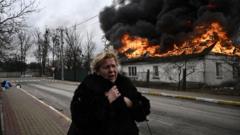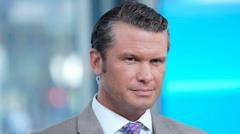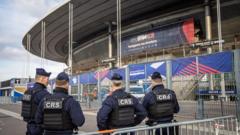
The Ukraine-Russia War Reaches a Critical Juncture
As the conflict enters its 1000th day, the stakes have never been higher, with Western powers significantly boosting Ukraine’s military capabilities and Russia escalating nuclear tensions.
Western Support for Ukraine Intensifies
The United States made several landmark decisions to support Ukraine. President Biden authorized the use of long-range ATACMS missiles to strike targets inside Russia, marking a significant policy shift. Ukraine subsequently fired these missiles into Russia’s Bryansk region, with conflicting reports about interception rates. This marked the first time American-made missiles struck Russian soil.
Additionally, Ukraine launched UK-supplied Storm Shadow missiles into Russia’s Kursk region, where Ukrainian troops have seized a substantial territory. Biden further expanded Ukraine’s arsenal by approving the use of anti-personnel landmines, which are considered crucial for defensive strategies on the eastern frontline.
Russia’s Nuclear Posturing
Simultaneously, Russia raised the nuclear stakes. Putin modified Russia’s nuclear doctrine, lowering the threshold for potential nuclear weapon use. The new doctrine states that an attack from a non-nuclear state backed by a nuclear power will be treated as a joint assault on Russia.
Russia also deployed a new “Oreshnik” missile to Dnipro, which Putin claimed travels at ten times the speed of sound. Observers interpret this as a warning about potential nuclear weapon delivery capabilities.
Interestingly, Western leaders seem less alarmed by these nuclear threats, partly due to China’s potential moderating influence. The West believes Beijing would strongly discourage nuclear weapon usage.
Global Conflict Concerns
Both Russian President Putin and Polish Prime Minister Donald Tusk acknowledged the potential for the conflict to acquire a “global character.” The involvement of the US, UK, and now North Korea (which has deployed troops to fight alongside Russia) has heightened these concerns.
Anticipating Trump’s Presidency
The timing of these developments likely relates to the upcoming transition to a Trump presidency. Trump has previously pledged to end the war quickly, with potential compromises involving Ukrainian territorial concessions.
The Biden administration appears to be expediting military aid before Trump takes office. Former Ukrainian foreign minister Dmytro Kuleba suggested that Trump might seek to demonstrate leadership by resolving the conflict, warning that mishandling Ukraine could become his “Afghanistan.”
Ukrainian President Volodymyr Zelensky has expressed a desire to resolve the conflict through diplomatic means by 2025.
Conclusion
These recent developments might represent a strategic positioning for potential future negotiations rather than an imminent escalation. The complex interplay of military support, nuclear rhetoric, and political transitions continues to shape the ongoing conflict.








